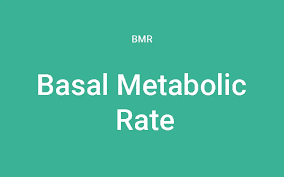Welcome to our Healthy Weight Calculator, the perfect tool to help you achieve and maintain your optimal well-being. We’ll guide you in finding your Healthy Weight Range for Height, ensuring you’re on track for a healthier, happier you. Let’s embark on this journey together!
Healthy Weight Calculator
[ez-toc]
How Much Should I Weigh?
Are you trying to figure out the ideal weight for your body? “How much should I weigh?” is a question that many people often ask themselves. With so much conflicting information available, it can be confusing to determine what the right answer is. In this comprehensive guide, we will explore the factors that influence a healthy weight, discuss different methods of calculating your ideal weight, and provide tips on how to maintain a healthy lifestyle.
Understanding Body Weight:
First and foremost, it’s essential to understand that body weight is influenced by various factors, such as age, sex, height, muscle mass, and genetics. It’s crucial to remember that there is no “one-size-fits-all” approach to determining a healthy weight, as each individual’s needs and goals may vary. Your ideal weight should be the one that allows you to feel good about yourself, maintain a healthy lifestyle, and reduce the risk of health problems.
BMI: A Common Measure of Healthy Weight:
Body Mass Index (BMI) is a widely used measure that calculates the relationship between your weight and height. Although it doesn’t directly measure body fat, it can provide a general idea of whether you’re underweight, normal weight, overweight, or obese. To calculate your BMI, use the following formula:
BMI = weight (kg) / (height (m))^2
The World Health Organization (WHO) classifies BMI ranges as follows:
- Underweight: BMI < 18.5
- Normal weight: BMI 18.5-24.9
- Overweight: BMI 25-29.9
- Obese: BMI ≥ 30
However, it’s essential to note that BMI has its limitations. It doesn’t account for muscle mass, which can make athletes appear overweight, nor does it consider fat distribution, which may vary between individuals.
Other Methods for Determining Ideal Weight:
While BMI is a popular method, there are other ways to gauge a healthy weight. Some of these include:
- Waist-to-hip ratio: This measures fat distribution and can help identify health risks associated with excess abdominal fat.
- Body fat percentage: A more accurate method of measuring body composition, which considers both fat mass and lean mass.
- Waist-to-height ratio: A simpler, yet effective method that considers waist circumference in relation to height.
Consulting with a healthcare professional can help you determine which method is most suitable for your individual needs.
Tips for Achieving and Maintaining a Healthy Weight:
If you’re looking to reach or maintain a healthy weight, consider these tips:
- Focus on a balanced diet: Incorporate a variety of fruits, vegetables, lean proteins, whole grains, and healthy fats into your meals.
- Exercise regularly: Aim for at least 150 minutes of moderate-intensity aerobic activity or 75 minutes of vigorous-intensity aerobic activity per week.
- Get enough sleep: Sleep is crucial for overall health, and studies have shown that inadequate sleep can contribute to weight gain.
- Manage stress: Stress can lead to emotional eating and poor food choices. Incorporate stress-reduction techniques like meditation or yoga into your routine.
- Seek professional guidance: If needed, consult with a registered dietitian or personal trainer to create a personalized plan for your weight management goals.
Formulas for Finding the Ideal Weight
When it comes to determining your ideal weight, there is no “one-size-fits-all” answer. Various factors, such as height, age, sex, and body composition, play a crucial role in defining the appropriate weight for each individual. In this SEO-friendly article, we’ll delve into several popular formulas that can help you pinpoint your ideal weight, and understand the pros and cons of each method. By the end of this guide, you’ll have the knowledge to make well-informed decisions about your health and weight goals.
Body Mass Index (BMI):
BMI is a widely recognized formula that calculates the relationship between your weight and height. It provides a general indication of whether you fall within a healthy weight range. The formula for BMI is as follows:
BMI = weight (kg) / (height (m))^2
The World Health Organization (WHO) classifies BMI ranges as:
- Underweight: BMI < 18.5
- Normal weight: BMI 18.5-24.9
- Overweight: BMI 25-29.9
- Obese: BMI ≥ 30
Keep in mind that BMI doesn’t consider factors such as muscle mass, fat distribution, or body composition, which can sometimes lead to inaccurate results.
Waist-to-Hip Ratio (WHR):
WHR measures fat distribution and helps identify potential health risks associated with excess abdominal fat. To calculate your WHR, follow these steps:
- Measure your waist circumference at the narrowest point, usually just above the belly button.
- Measure your hip circumference at the widest point, typically around the buttocks.
- Divide your waist measurement by your hip measurement.
The ideal WHR differs between men and women:
- For men: A healthy WHR is below 0.9.
- For women: A healthy WHR is below 0.85.
Hamwi Method:
The Hamwi method is a simple formula that estimates ideal body weight based on height and gender:
- For men: Ideal weight (kg) = 48 kg + 2.7 kg for each inch over 5 feet (1.52 meters)
- For women: Ideal weight (kg) = 45.5 kg + 2.2 kg for each inch over 5 feet (1.52 meters)
This formula doesn’t account for factors like muscle mass, age, or body composition, so it’s best used as a general guideline.
Devine Formula:
Similar to the Hamwi method, the Devine formula estimates ideal body weight based on height and gender:
- For men: Ideal weight (kg) = 50 kg + 2.3 kg for each inch over 5 feet (1.52 meters)
- For women: Ideal weight (kg) = 45.5 kg + 2.3 kg for each inch over 5 feet (1.52 meters)
Like the Hamwi method, the Devine formula should be used as a general guideline, as it doesn’t consider individual variations in body composition.
Robinson Formula:
The Robinson formula is another method to estimate ideal body weight based on height and gender:
- For men: Ideal weight (kg) = 52 kg + 1.9 kg for each inch over 5 feet (1.52 meters)
- For women: Ideal weight (kg) = 49 kg + 1.7 kg for each inch over 5 feet (1.52 meters)
Again, this formula should be used as a rough guideline, as it doesn’t factor in variables like age, muscle mass, or body composition.
healthy weight gain foods
Gaining weight in a healthy and sustainable way is just as important as losing weight for those who struggle with being underweight. Incorporating nutrient-dense, high-calorie foods into your diet can help you achieve a healthy weight without resorting to unhealthy options. In this SEO-friendly article, we will explore the top healthy weight gain foods that can support your journey towards a more robust and healthier body.
Whole Grains:
Whole grains are a rich source of complex carbohydrates, fiber, and essential nutrients. They provide the energy needed to fuel your workouts and daily activities while supporting healthy weight gain. Some excellent whole grain options include:
- Brown rice
- Quinoa
- Whole wheat bread
- Oats
- Barley
Lean Protein Sources:
Protein plays a crucial role in muscle growth and repair, making it an essential component of a healthy weight gain diet. Opt for lean protein sources that are low in saturated fat and high in essential nutrients. Some examples are:
- Chicken breast
- Turkey
- Fish (salmon, tuna, or mackerel)
- Legumes (lentils, chickpeas, or black beans)
- Greek yogurt
Nuts and Nut Butters:
Nuts and nut butters are calorie-dense, packed with healthy fats, protein, and essential nutrients. They make for an easy and delicious snack that can help you meet your daily caloric needs. Some popular options include:
- Almonds
- Walnuts
- Cashews
- Peanut butter
- Almond butter
- Healthy Fats:
Incorporating healthy fats into your diet can help you gain weight without increasing your risk of heart disease. These fats also support brain function, hormone production, and overall health. Some excellent sources of healthy fats are:
- Avocado
- Olive oil
- Coconut oil
- Flaxseeds
- Chia seeds
Dairy:
Dairy products can be an excellent addition to a healthy weight gain diet, as they are high in protein, calcium, and other essential nutrients. When choosing dairy products, opt for full-fat versions to increase your calorie intake. Some nutritious options are:
- Whole milk
- Greek yogurt
- Cheese
- Cottage cheese
Dried Fruits:
Dried fruits are a concentrated source of calories, vitamins, minerals, and fiber, making them an ideal choice for healthy weight gain. They can be enjoyed on their own or added to various recipes for an extra boost of nutrients. Some popular dried fruits include:
- Raisins
- Dates
- Prunes
- Apricots
- Figs
Smoothies and Shakes:
Smoothies and shakes can be a delicious and convenient way to increase your calorie intake while incorporating nutrient-dense ingredients. Customize your smoothies with your favorite fruits, vegetables, protein sources, and healthy fats for a well-rounded and satisfying meal. Some ideas for smoothie ingredients are:
- Bananas
- Spinach or kale
- Berries
- Greek yogurt
- Almond or peanut butter
Gaining weight healthily requires a focus on nutrient-dense, high-calorie foods that provide your body with the essential nutrients it needs to thrive. Incorporating whole grains, lean protein sources, nuts and nut butters, healthy fats, dairy, dried fruits, and smoothies into your diet can help you reach your weight gain goals while promoting overall health. As always, consult with a healthcare professional or registered dietitian to develop a personalized plan tailored to your unique needs.
healthy weight loss diet plan
Embarking on a weight loss journey can be challenging, but having a healthy diet plan in place can make all the difference. A successful weight loss plan should prioritize nutrient-dense foods, portion control, and balance to ensure you get the essential nutrients your body needs. In this comprehensive, SEO-friendly article, we will outline the key components of a healthy weight loss diet plan that can help you achieve your goals while promoting overall health and well-being.
- Focus on Whole Foods:
A healthy weight loss diet plan should emphasize whole, unprocessed foods that are rich in nutrients and fiber. These foods will keep you fuller for longer and provide your body with the essential vitamins and minerals it needs. Incorporate these types of foods into your meals:
- Fruits and vegetables
- Whole grains (brown rice, quinoa, whole wheat bread)
- Lean proteins (chicken, fish, legumes)
- Healthy fats (avocado, nuts, seeds, olive oil)
- Practice Portion Control:
Portion control is a crucial aspect of any weight loss plan. Consuming smaller portions allows you to enjoy a variety of foods without overeating. Use these strategies to manage portion sizes:
- Use smaller plates and bowls
- Measure out servings using measuring cups or a food scale
- Pay attention to hunger cues and eat slowly
- Avoid eating directly from containers or bags
- Stay Hydrated:
Drinking plenty of water is essential for overall health and can also aid in weight loss by helping you feel full and reducing hunger. Aim to drink at least 8 cups (64 ounces) of water per day, or more if you are physically active or live in a hot climate.
- Opt for Balanced Meals:
A healthy weight loss diet plan should include balanced meals that incorporate protein, carbohydrates, and healthy fats. This balance helps maintain steady blood sugar levels, reduces cravings, and keeps you satisfied. Aim for these macronutrient proportions in your meals:
- 45-65% carbohydrates
- 20-35% fats
- 10-35% protein
- Limit Added Sugars and Processed Foods:
Cutting back on added sugars and processed foods is essential for successful weight loss. These foods are often high in empty calories and can contribute to weight gain and poor health. Instead, choose natural sweeteners like honey or fruit to satisfy your sweet tooth.
- Plan Your Meals and Snacks:
Planning your meals and snacks in advance can help you make healthier choices, control portion sizes, and avoid mindless eating. Set aside time each week to create a meal plan and grocery list, ensuring you have the ingredients you need for nutritious meals and snacks throughout the week.
- Seek Professional Guidance:
If you need help creating a personalized weight loss diet plan, consider consulting with a registered dietitian or nutritionist. They can provide expert guidance and help you develop a plan tailored to your individual needs, preferences, and goals.
A healthy weight loss diet plan should prioritize whole foods, portion control, hydration, balance, and meal planning to help you achieve your goals while promoting overall health. By incorporating these principles into your daily routine, you can develop sustainable habits that will support your weight loss journey and lead to long-term success. Remember, it’s essential to consult with a healthcare professional or registered dietitian before making significant changes to your diet or lifestyle.

Discover Your Perfect Number: Using a Healthy Weight Calculator
Understanding your ideal weight is an essential step in maintaining optimal health and wellness. With numerous factors to consider, such as height, age, sex, and body composition, finding the perfect weight range can be a challenge. One useful tool to simplify this process is a healthy weight calculator. In this SEO-friendly article, we will explore the concept of a healthy weight calculator and how it can help you make informed decisions about your health and fitness journey.
What is a Healthy Weight Calculator?
A healthy weight calculator is an online tool that uses various factors, such as your height, age, sex, and sometimes activity level, to estimate your ideal weight range. By entering your information into the calculator, you can gain a better understanding of your optimal weight, which can help guide your health goals and fitness endeavors.
How Does a Healthy Weight Calculator Work?
Most healthy weight calculators use the Body Mass Index (BMI) as a basis for determining a healthy weight range. The BMI formula calculates the relationship between your weight and height, providing a general idea of whether you fall within a healthy weight range. The formula for BMI is as follows:
BMI = weight (kg) / (height (m))^2
The World Health Organization (WHO) classifies BMI ranges as:
- Underweight: BMI < 18.5
- Normal weight: BMI 18.5-24.9
- Overweight: BMI 25-29.9
- Obese: BMI ≥ 30
Benefits of Using a Healthy Weight Calculator:
Using a healthy weight calculator can offer several benefits, including:
- Easy access: As an online tool, a healthy weight calculator is readily available and easy to use, providing quick results.
- Personalized information: A healthy weight calculator can provide personalized information based on your unique factors, such as height, age, and sex.
- Goal setting: Knowing your ideal weight range can help you set realistic health and fitness goals that are tailored to your individual needs.
- Motivation: Understanding your optimal weight can serve as motivation to maintain a healthy lifestyle and achieve your desired weight.
Limitations of a Healthy Weight Calculator:
While a healthy weight calculator can be a helpful tool, it’s essential to recognize its limitations:
- Lack of specificity: A healthy weight calculator may not account for factors like muscle mass, fat distribution, or body composition, which can impact your ideal weight.
- No substitute for professional advice: A healthy weight calculator should not replace the guidance of a healthcare professional or registered dietitian, who can provide personalized recommendations based on a comprehensive assessment of your individual needs.
Conclusion:
A healthy weight calculator can be a valuable tool in determining your ideal weight range, offering personalized information and guidance in setting realistic health goals. However, it’s essential to recognize the limitations of this tool and consult with a healthcare professional or registered dietitian for more comprehensive and tailored advice. By using a healthy weight calculator in conjunction with expert guidance, you can embark on a successful and sustainable health and fitness journey.





